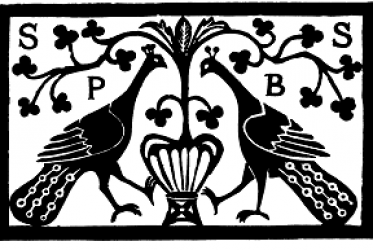On behalf of Christos Stavrakos, Secretary of the AIEB (Association Internationale des Études Byzantines), please find below an updated version of the First Circular of the 25th International Congress of Byzantine Studies (Vienna 2026), including a language update.
_______
Dear Colleagues,
Following the online meeting of the Organizing Committee of the 25th International Congress of Byzantine Studies -Vienna 2026 with the members of the AIEB Bureau on 16 March 2023, we would like to inform you about the preliminary profile and structure of the Congress program and to appeal to all National Committees to send us their proposals for Round Tables by 31 December 2023. The call for Free Communications will be sent in spring 2025. You may find below the main theme of the Congress, the themes of six Plenary Sessions, as well as the timetable and procedures for Round Tables, to be confirmed and approved at the Inter Congress meeting in Athens on 12 April 2024.
INFORMATION ON THE PROFILE AND STRUCTURE OF THE 25th CONGRESS OF BYZANTINE STUDIES, Vienna 2026
Date: The 25th International Congress of Byzantine Studies will be held on 24 to 29 August 2026 in Vienna, Austria.
Main Theme: “Byzantium beyond Byzantium”, “Byzance au-delà de Byzance”, “Byzanz jenseits von Byzanz”, “Bisanzio oltre Bisanzio”, “Το Βυζάντιο πέρα από το Βυζάντιο”
General Rule: Scholars can participate in no more than two sessions throughout the Congress. (i.e., as speaker in two sessions, or as speaker in one session plus as convener, or as convener in two sessions).
Plenary Sessions: There will be six Plenary Sessions. The list of Plenary Session themes and speakers will be approved at the Inter-Congress meeting in Athens on 12 April 2024. National Committees will be informed about the details shortly before the meeting.
The themes for Plenary Sessions are:
1. Byzantium lost and found
2. Romanitas beyond Byzantium. Diffusion and impact of ideas of Rome in a „post-Roman” world
3. The beasts, the crops and the bones. Biological perspectives on the Byzantine world
4. Byzantine Diversities
5. Reading Byzantine literature across the centuries
6. Byzantium in Central Europe
Round Tables:
General rules
1. Round Tables must be proposed through the National Committee of the proposer. There is also the option of joint proposals by more than one National Committee.
2. Round Tables are allocated 90 minutes. They should consist of no fewer than four and no more than six speakers, plus the convener(s), in order to ensure adequate time for discussion.
3. The professional affiliation of the speakers should represent at least two countries. We particularly encourage the inclusion of young researchers.
4. We strongly encourage those who propose Round Tables to follow the Congress main theme.
5. The most important criterion for accepting a Round Table proposal will be its innovative scholarly contribution.
6. The number of proposals, including joint proposals by each National Committee is limited to ten.
7. Proposals should include a title, an abstract of 250 words, 5 key words, the names of the convener(s) and speakers as well as the name of the person sending the proposal, his/her affiliated institution and his/her mail address.
8. Proposals should be written in English, French, German, Italian, or Modern Greek.
Timetable
– The deadline for submission of Round Table proposals by National Committees to the Organizing Committee is 31 December 2023. Any Round Table proposal sent after the deadline will not be accepted. The proposals should be sent to program.ICBS2026@univie.ac.at.
– Conveners of Round Tables will be informed about the decision of the Program Committee (in accordance with the Bureau of the AIEB) in mid-February 2024. Proposed Round Tables will either be accepted or rejected or the option of an Organized Session will be offered.
– Conveners of accepted Round Tables will be asked to confirm their participation and the organisation of their Round Tables by 31 March 2024. – The list of Round Tables will be presented at the Inter-Congress meeting in Athens on 12 April 2024.
Vienna, March 2023
The Organizing Committee





